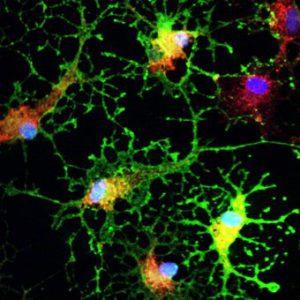Dr Mark Kotter
Stem Cells and Cellular Reprogramming
Biography
Dr Kotter is an academic neurosurgeon at the University of Cambridge specialising in spinal surgery.
He graduated with distinction from the University of Graz, and obtained MPhil/PhD degrees studying neural regeneration at the University of Cambridge in the laboratory of Prof. Robin Franklin. He underwent neurosurgery training at the Medical University Vienna and the University of Cambridge and sub specialist training in complex spinal surgery with Prof. Michael Fehlings, University of Toronto.
His research focus is regenerative medicine and spinal cord injury. A particular interest is degenerative cervical myelopathy, the most common form of spinal cord dysfunction of adulthood. As the lead for academic spine, Dr Kotter is tasked with building a translational research program for spinal pathologies in Cambridge.
Supported by a Clinician Scientist Award from the National Institute for Health Research (NIHR) and in collaboration with www.myelopathy.org and MediciNova, his team translates findings made in his basic science lab into the first regenerative medicine trial for cervical myelopathy (RECEDE Myelopathy).
Dr Kotter leads a basic science research lab investigating mechanisms of regeneration of the Central Nervous System and cellular reprogramming.

Research
The focus of our stem cell lab are diseases that affect central nervous system white matter, including trauma (e.g. spinal cord injury), neurodevelopmental conditions (e.g. autism), and neurodegenerative diseases, such as multiple sclerosis. We have discovered a number of regenerative strategies that may help to promote regeneration in the context of injury. Supported by the National Institute of Health Research and Myelopathy.org, a charity that promotes a common form of spinal cord injury, the clinical arm of our laboratory translates our findings into clinical trials.
The need for better (human) models for our research led us to develop a novel technology that has rendered “reprogramming” of human stem cells “deterministic”. Cellular reprogramming is similar to rebooting a computer with a new program. Because the transcriptional network of a cell determines its identity, this results in a complete change of cell type. By optimising the way reprogramming cassettes are expressed in human stem cells, we have made this process so efficient that has become “deterministic”. Efficient (within days rather than months) production of nearly pure cultures of distinct human cell types, has generated unprecedented opportunities of studying disease using human cells. In the lab we create brain on chip models that will accelerate the development of novel treatment approaches.


